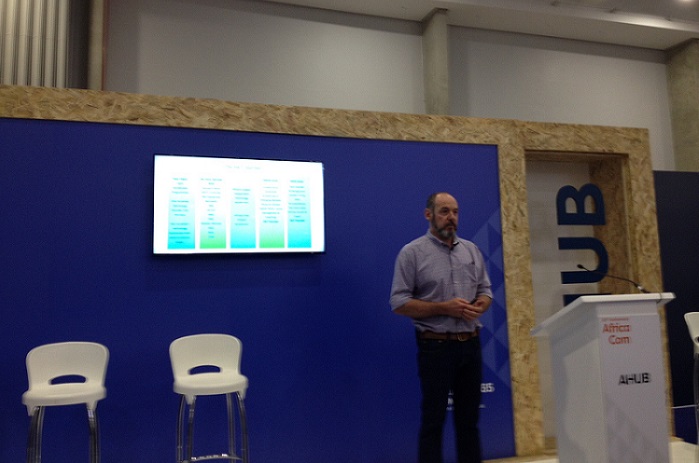It takes on average around 22 meetings and 26 months for a startup to secure a deal or partnership with a bank or other large corporate, if it happens at all.
That was the estimate given by Keith Jones, co-founder of South African accelerator Sw7, at last week’s AHUB event in Cape Town, who outlined exactly how tough it is for a tech startup to successfully leverage on a corporate’s market base.
“Corporates have a lot of constraints. They have to report to their stakeholders, who are asking them to be relevant in the future and at the same time give them returns now,” he said.
“There is no single person inside a corporate business that is being rewarded for making the ecosystem work. Nobody is being incentivised to create systemic success.”
Jones also moved to quash the idea that banks and other corporate entities have unlimited amounts of cash that they could be spending on partnerships with tech startups.
“The banks do not have capacity. They have various projects on the go to keep themselves trading. They have more developers doing the work to keep the lights turned on. You think banks have the resources but they don’t. The banks are at capacity,” he said.
All of these factors, coupled with things like risk committees and high staff turnover, lead Jones to estimate that there are between 20 and 30 barriers to get through if a startup is to secure such a deal.
Another issue is the way in which corporates make money, which is different to that of most startups. This is either by serving other corporates, or selling big products to large markets, whereas startups generally grow within a niche.
“The corporates need a business case. It is very hard to create. There is no mass market of SMEs. The corporate doesn’t want a niche, it wants a big play. If it is strategic they will do it themselves, if it is not they won’t work with you,” Jones said.
“If it is new, there is no data, and they can’t do it. If it is not new, they say “why should we work with you?”. “Corporates want market share, but innovators create new markets. That’s how they scale, because there is no competition.”
That’s not all.
“If you come to a large organisation, they can’t do too much that is new. They also can’t keep on releasing new products into the market because their customers won’t trust them,” said Jones.
This might sound like bleak news to most entrepreneurs, but Jones says “the game is changing a bit” and there is at least some potential for partnerships as startups have the potential to serve customers at a fraction of the cost of corporate entities.
He called on big businesses to better streamline the process of dealing with startups using three “fixes”. These are better planning, moving faster, and creating scale through networks.
“Corporates are coming to the market with no commercial plan. They come with a budget but have no idea how they will make money,” said Jones.
They also need to better understand the challenges faced by startups, and not waste their time. In essence, if the answer is “no”, they need to say “no” more quickly.
“Entrepreneurs tend to be used as an idea petting zoo for corporates. The corporate “innovation team” is a massive distraction. If you are an SME, do not engage. Corporates have a massive capacity for distraction,” Jones said.
Finally, he called on corporates to become less inward-facing and moved towards a more network-based way of doing business.
“The opportunities are outside the firewall. The network of networks is what will sort Africa out. The corporates need to mobilise it, but they are not doing it yet,” he said.


